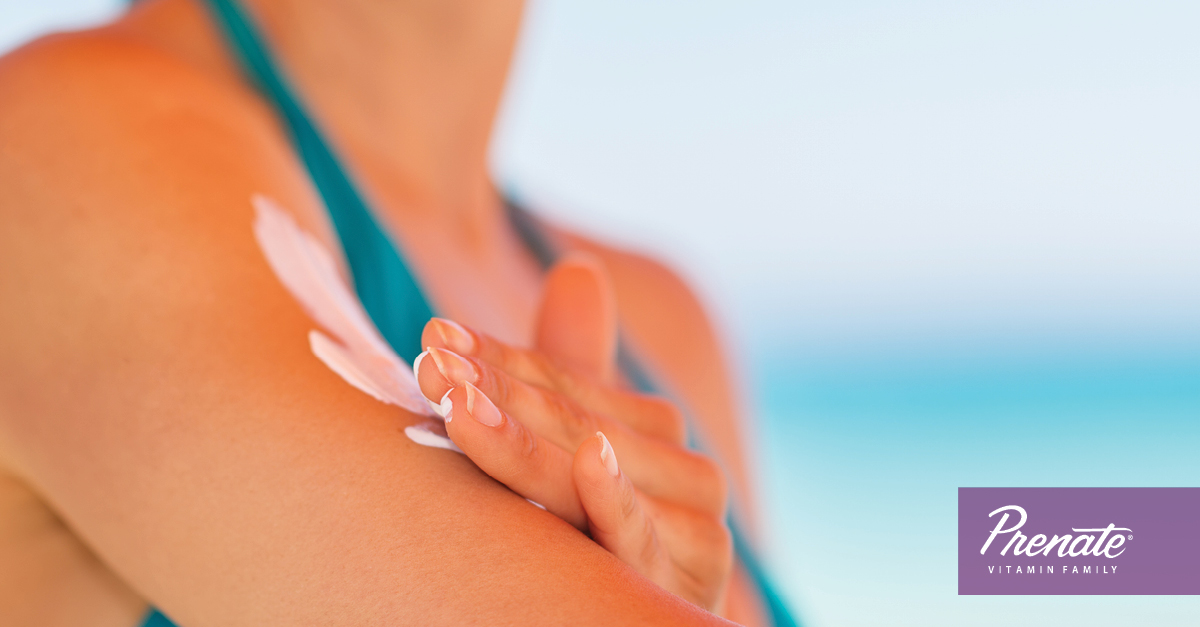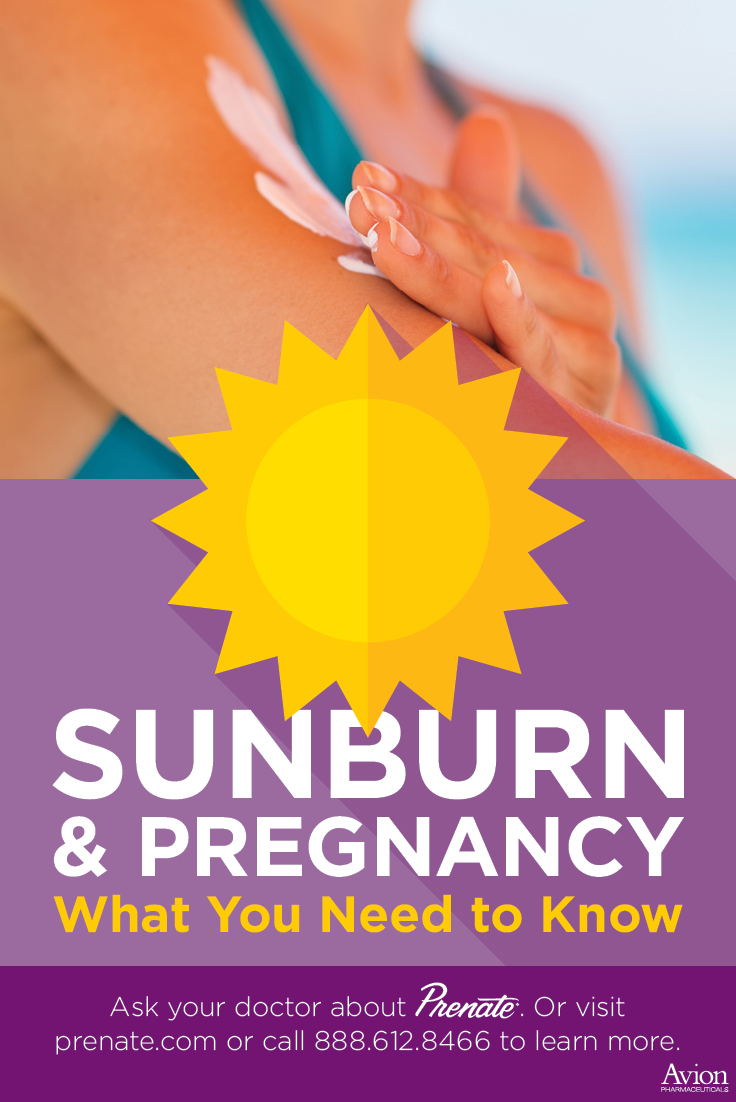How Sunburn Affects Pregnancy
July 18, 2018
While mild sunburns during pregnancy usually don’t pose a threat to an expectant mom’s unborn child, serious sunburns can cause side effects that may be cause for concern.1
How to Identify a Serious Sunburn
A serious sunburn is red, painful to the touch, and often includes blistering of the topmost layer of skin. Deep blisters could cause scabbing and even infection.2
There are a few stages of sunburn, but not all of them are serious. When unprotected skin is exposed to UVB rays, it tries to protect itself by producing melanin. People with medium to dark skin tones find that their skin tone darkens further when exposed to the sun.2
Those with fair skin simply don’t have the reserves of melanin needed to protect their skin from sun damage. For them, skin that is sensitive to the touch and red indicates a sunburn. These effects may not be noticeable until a few hours after sun exposure. In most cases, a mild sunburn heals on its own in three to five days.2
A serious sunburn could take longer to heal. Blisters may take a full day to appear, but they are a key indicator of moderate to severe skin damage.2 The top layer of skin cells will die and peel after the blisters heal.
When to Seek Help from a Doctor
If your sunburn is so severe that you develop blisters on your skin, consult your doctor about how best to care for your skin while you heal. If you experience sun-exposure related symptoms like nausea, chills, fever, headache or dehydration, seek immediate medical care.3
There are many ways to treat a sunburn and its accompanying symptoms. Even if you are in the earliest stages of pregnancy, it’s crucial to let the medical professionals treating you know that you are pregnant. Some treatments may not be safe or appropriate for a pregnant mom and her growing baby.
If you develop blisters after experiencing a sunburn, watch them carefully for signs of infection. Oozing, pus-filled or severely painful blisters may be a sign of infection.3
How to Reduce the Negative Effects of Sunburn
The best way to reduce the long-term and short-term negative effects of a sunburn is to make sure that you stop sun exposure as soon as you suspect that your skin is in danger.4
If your skin looks red, feels hot to the touch, or starts to feel tingly, cover up or take refuge in the shade. Inflammation and pain are two common and bothersome symptoms of sunburn. Apply aloe vera gel to the painful and red areas as soon as you notice the sunburn. Cold compresses also offer pain relief.4
Even if you don’t feel dehydrated, it’s important to drink extra water while you heal. Muscle cramps, fatigue and headaches may be signs of dehydration. Stay out of the sun and keep your body cool for a few days until your sunburn heals.4
Preventing Sunburn During Pregnancy is Important for Both Mom and Baby
Hormones may cause dark patches to appear on your skin during pregnancy.5 Some women experience sun sensitivity, including overheating and dehydration, while they are pregnant.
Not drinking enough water during hot weather can lead to unnecessary stress on your body. Dehydration caused by excessive sun exposure may lead to preterm contractions.5 In addition, an increase in maternal core temperature could pose a threat to a baby’s development.5
Sunburn can negatively affect your pregnancy by causing dehydration, an increase in core temperature, severe sunburn and overheating; sunburn could even lead to skin cancer.5 For these reasons, it’s essential to avoid spending too much time in the sun.
You Are About To Leave This Website
By clicking continue, this link will take you to a website to which Alora Pharmaceuticals Policies & Terms of Use do not apply. Alora and its subsidiaries do not control the content or accuracy of third-party websites and assume no responsibility for their use.











